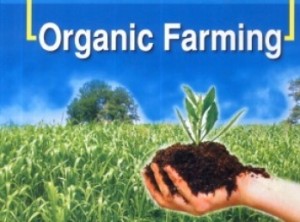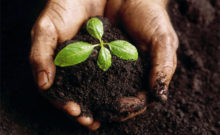 Organic Farming & Community
Organic Farming & Community
The argument that we need genetically modified produce, pesticides, and herbicides to produce enough food to feed the planet is false. Organic farming has become a controversial way of life rather than the norm, and what is conventional is covered in toxic chemicals. Can organic farming end hunger for the world, or do we need to depend on science in the form of GMO products and pesticide coated produce to ‘save’ us? What if all it would take to end world hunger was the spirit of community to end hunger? What if all it took was that our priorities needed to shift to making eating a human right instead of a privilege.
Population vs. Production
Currently, our world population is roughly 7 billion people and growing. By 2050, it has been estimated that roughly 2 billion more people will be walking on the Earth. Seven billion is a lot of mouths to feed. At this moment, the world’s farms are producing enough food to feed roughly 12 billion people. Yet, in the United States alone 1 in 5 children is starving. This says nothing of countries like Africa, India, and many others around the globe. Where is the food and how can a surplus of possibly 4 billion leave us lacking? Production and distribution are both to blame for the world’s hunger problem. There are plenty of farms producing crops. Nevertheless, not all are producing for human consumption. Many of these farms clear and plant huge expenses of land to grow feed for animals. This feed goes towards the meat consumption that wealthier nations demand. This is, where the production and population along with distribution become such an imbalance that there is hunger in the world. What is being produced cannot sustain a human being and provide all the nutritional needs to sustain life. The food that is produced for human consumption is immediately shipped to wealthier countries or kept in those countries and priced beyond the means of the poor. 40% of this is often thrown away!
One City Beat Hunger
In 2009, an article by Frances Moore Lappe, highlighted the city of Belo Horizonte, Brazil. In 1993 in a city with 2.5 million people, 11% lived in absolute poverty with 20% of the children going hungry. That is, until a new administration came into office and declared “food a right of citizenship.” New programs put local farm produce in school lunches and brought farmers into the city by offering them places to sell their wares. This forced retail markets to reduce their prices that were marked-up to 100% for their own profit! Since the farmers’ profits also grew with no middleman taking a cut they were able to produce more organic food. The city contracted with farmers and prices are regulated for fairness. Even the poor were able to have fresh, wholesome produce rather than processed rations. In 2009, there were “34 such markets where the city determines a set price—about two-thirds of the market price—of about twenty healthy items, mostly from in-state farmers and chosen by store-owners. Everything else they can sell at the market price.” This is only one of the many programs they put into place and yet with all the programs they used less than 2% of the city’s budget. Belo, Brazil has eliminated their starvation and distribution issue – why can’t the rest of the world? Organic farming can sustain us if we are willing to treat food as a right of citizenship on the Earth rather than a privilege of the privileged.
Applications & Resources
- Find out how one Brazilian City ended a serious hunger problem and created a model to follow
- Discover how Organic Farming can Feed the World and catch up on recent 2015 data
- Read more at org and learn the facts and statistics of world hunger and poverty
- Got to Eric Holt Gimenez’s blog on how we can grow enough food but still have hunger
- Learn about Hunger Math and how we produce for our priorities that affect how we distribute



